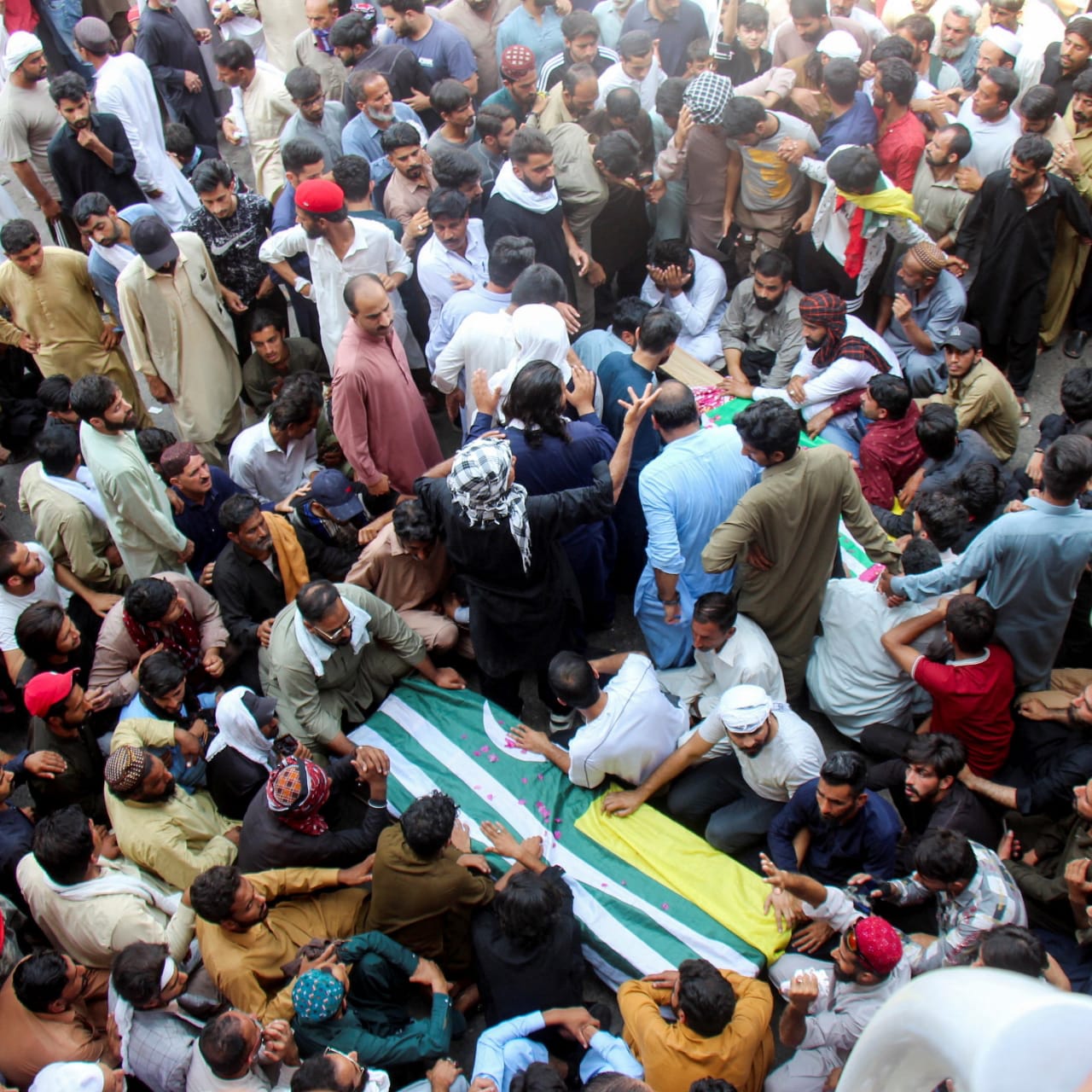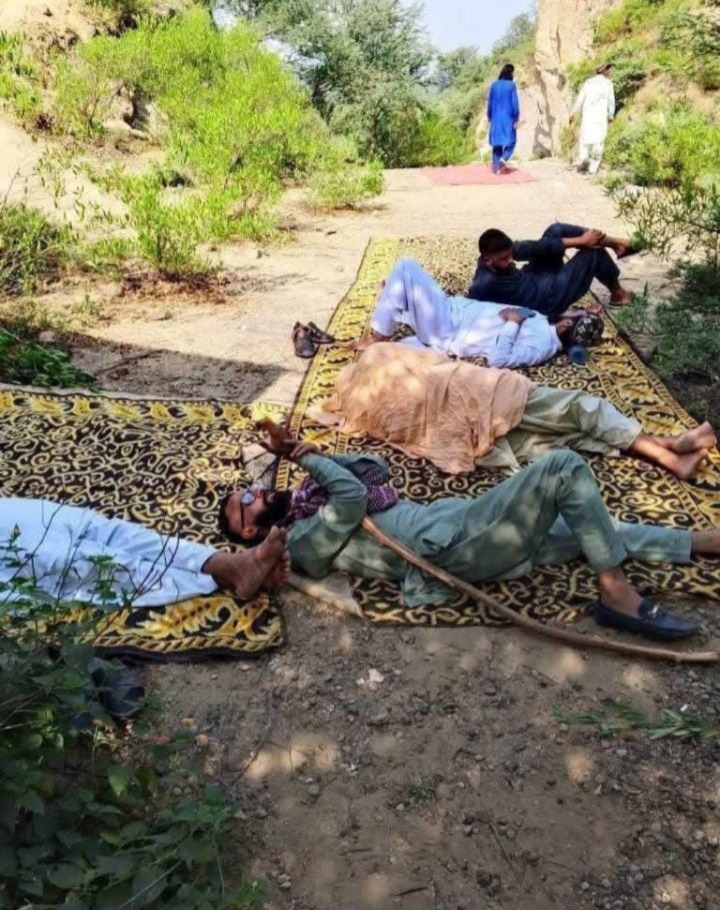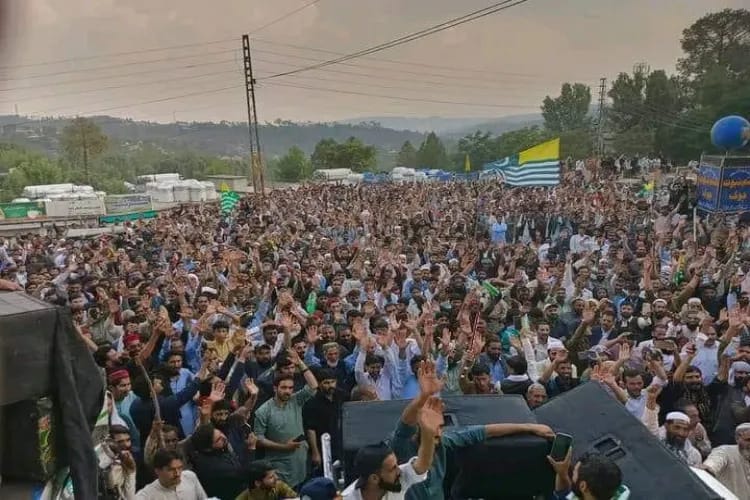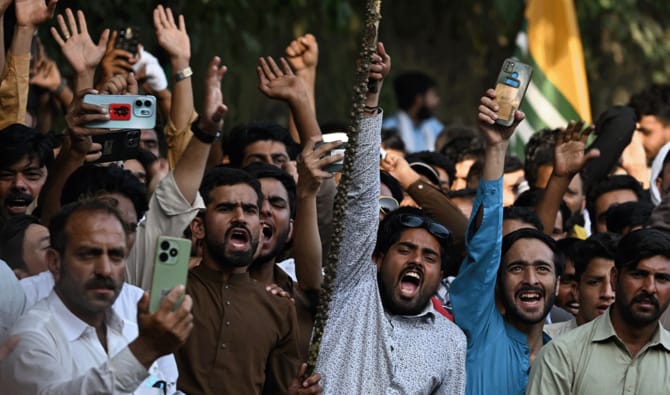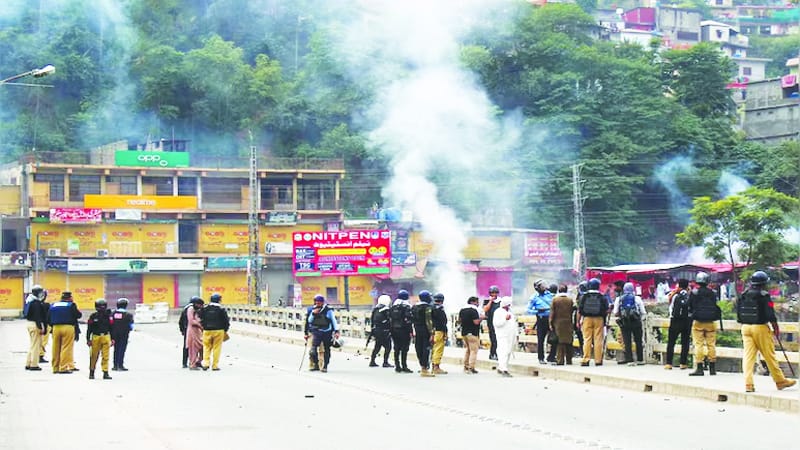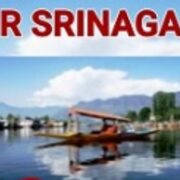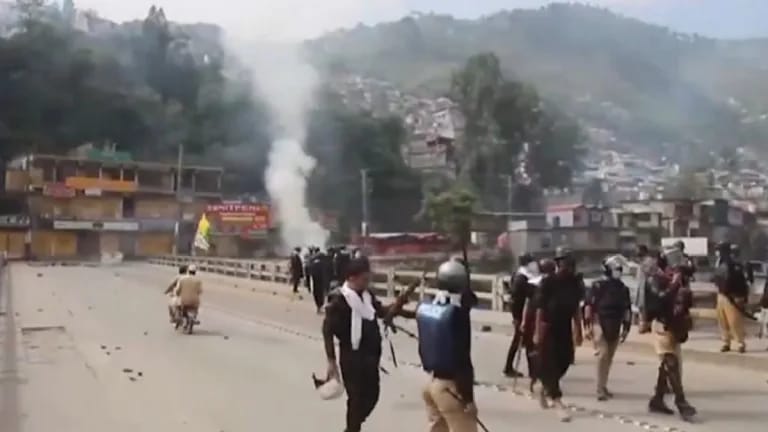The Charade of ‘Azad Kashmir’ Is Collapsing As Protests in POJK Expose Pakistan’s Hypocrisy

The story of Pakistan Occupied Jammu and Kashmir is a story of betrayal, neglect, and deliberate handicapping by a state that has built its entire identity on slogans of freedom but has denied every ounce of it to the people under its own jackboot.
For decades, Islamabad and the Pakistan Army have treated PoJK not as a land of human beings with aspirations but as a pawn in their cynical game against India. The latest round of protests, which have swept through Muzaffarabad, Rawalakot, Mirpur, and Neelam Valley, expose the raw nerve of anger that has been simmering in the hearts of millions in Pakistan-Occupied Jammu and Kashmir.
The Verdict Against Pakistan
These protests are not about some marginal issue. They are a verdict against Pakistan itself. When people took to the streets in their tens of thousands, their demands were painfully simple: affordable wheat, reliable electricity, better education, decent healthcare, an end to elite privileges, and above all, the right to decide their own future.
These are not revolutionary demands; these are the bare minimum expectations any state should guarantee its people. Yet, in PoJK, these basic facilities are treated like luxuries. The people who generate electricity from their rivers do not get it in their homes. Wheat that should have been subsidized to feed poor families is made unaffordable by the policies of Islamabad. Hospitals are in shambles, schools are underfunded, and roads connecting remote villages are broken or simply nonexistent. The truth is, Pakistan has deliberately kept PoJK backward, because progress and empowerment in this region would challenge Islamabad’s colonial hold.
Bullets Instead of Dialogue
The response of the state to these protests tells you everything you need to know about Pakistan’s real face. Instead of dialogue, they sent the Rangers. Instead of compassion, they sent bullets. At least twelve civilians have been killed in the past days of violent crackdowns. Some reports place the figure even higher, with over twenty lives lost if one includes police and paramilitary casualties. But for the Pakistan Army, human lives are expendable when their authority is challenged.
The Pakistan Army opened fire on unarmed demonstrators, they imposed indefinite curfews, they shut down internet and mobile services, they tried to choke the entire valley into silence. This is not governance; this is occupation. This is not the behavior of a democratic state; it is the reflex of a military dictatorship.
Contrast this reality with the situation in Jammu and Kashmir on the Indian side. Nobody denies that the Indian side has its own challenges, but when you compare the development indicators, the difference is staggering. On our side of the border, Jammu and Kashmir has universities, engineering colleges, medical institutes, national highways, airports, hydropower projects, and growing tourism infrastructure. Healthcare facilities like SKIMS, district hospitals, and medical colleges are far ahead of the skeletal health network in PoJK.
On our side of the border, roads and electricity are expanding year after year, powered by central investment. Literacy rates are significantly higher, institutions of higher learning are functional, and high digital connectivity is the norm. In PoJK, by contrast, children often have to walk miles for a basic school, hospitals lack doctors and medicines, power cuts last for hours if not days, and employment opportunities are practically nonexistent.
Manipulated Politics, Stolen Voices
This deliberate disparity is no accident. Islamabad never wanted PoJK to rise to the level of Jammu and Kashmir under India, because that would expose the sham of its so-called “Azad Kashmir” narrative. The Pakistan Army thrives on keeping the territory poor, dependent, and under tight control. A developed PoJK would mean empowered citizens demanding accountability. That is a threat the generals cannot tolerate. So they suffocate growth, they manipulate elections, and they ensure that PoJK remains decades behind its twin across the Line of Control.
Politically too, the suffocation is deliberate. In PoJK, twelve seats in the assembly are reserved for refugees who live in Pakistan, not in the territory itself. These seats are a permanent tool of manipulation, ensuring Islamabad’s grip on the legislature. Real local voices are marginalized. Whenever the people protest, Islamabad brands them as agents, silences them through force, or throws their leaders in jail.
The Charade In Pakistan-Occupied J&K
Compare this again with Indian J&K, where for all its controversies, legislatures, courts, and democratic processes exist and where leaders rise from within society itself. In PoJK, the so-called “prime minister” and “president” are powerless figureheads, controlled by Islamabad’s Ministry of Kashmir Affairs and dictated to by the Army’s GHQ in Rawalpindi. The entire system is a charade.
The protests of the last week are the clearest proof that this charade is collapsing. Ordinary people, not politicians, have risen. Farmers, shopkeepers, students, women, and the unemployed have braved curfews, bullets, and beatings to demand their rights. The funeral processions of the slain, with chants echoing against the Pakistan Army, show that the fear barrier has been broken. People are openly cursing the Army in the streets of Muzaffarabad and Rawalakot—something unthinkable a few years ago. They are declaring that the Pakistan Army, which claims to defend them, is in fact their biggest oppressor. The slogans are no longer against local administrators; they are against the generals themselves. The mask has fallen.
Freedom, Not Crumbs
The deaths tell the human story with cruel clarity. Twelve civilians killed in cold blood, including young men who had never picked up a weapon. Dozens more injured, some fighting for their lives in overcrowded hospitals. Families shattered, communities traumatized. And what for? For asking that wheat prices be reduced. For demanding that electricity generated from their rivers should light their homes instead of fueling industries in Punjab. For insisting that ministers and officials stop pocketing privileges while ordinary citizens suffer.
People on our side of the border say that if Pakistan-Occupied Kashmir is ‘Azad Kashmir’, then the word ‘Azad’ has been murdered. People say that the region should rather be called Azaab Kashmir. An Urdu word, Azaab stands for torment or suffering.
Pakistan’s apologists will say the government has accepted some of the demands, that subsidies have been restored, that reforms are being considered. But these are hollow concessions. Ninety percent of the demands may be addressed on paper, but the real demands—true political representation, abolition of manipulated assembly seats, an end to military dominance, and constitutional autonomy—remain untouched. Pakistan will never concede these, because conceding them means losing its grip. The pattern is always the same: crush protests with violence, offer some crumbs, and wait for the anger to subside.
Anger in POJK Is Too Deep
But this time, the anger is too deep, the wounds too raw, the hypocrisy too visible. The Pakistan Army, of course, plays the central role in this tragedy. It has converted PoJK into a garrison, not a province. Every major decision is cleared by generals, not civilians. The Army extracts resources, controls land, and dominates politics, while presenting itself as the guardian of “Kashmiri freedom.” In reality, it is enslaving the very Kashmiris it claims to champion. It has turned PoJK into a military colony, useful for strategic depth, propaganda, and training camps, but utterly neglected as a home for human beings.
So where does the future lie? The truth is, Pakistan has only two choices. It can continue this colonial stranglehold, sending soldiers to fire on unarmed civilians, keeping PoJK underdeveloped, and hoping to buy time with subsidies and slogans. Or it can finally confront reality, listen to the voices of the people, and let them decide their destiny. If Pakistan truly believes in self-determination, then why not start with PoJK? Why not allow its people to choose, to govern themselves, to live with dignity? Why not let them be free?
On our side of the border, J&K has universities, engineering colleges, medical institutes, national highways, airports, hydropower projects, and growing tourism infrastructure. Healthcare facilities, roads, electricity and digital connectivity are expanding year after year, powered by central investment
The answer is clear: because freedom for PoJK would shatter the lie on which Pakistan’s Kashmir policy is built. The people have already seen through the lie. They know they are far behind their brothers and sisters in Jammu and Kashmir under India. They know their land is rich in rivers and mountains, yet their children go hungry. They know their protests are met not with dialogue but with bullets from the very Army that claims to defend Islam and Kashmir. They know that Pakistan is not their savior but their jailer. And once people know this truth, there is no going back.
The uprising in PoJK is not the end; it is the beginning. The people will not remain silent after burying their dead. The slogans will not die down after seeing coffins draped in white. The rage will not subside when they remember who pulled the trigger. The day will come when the chain of Pakistan’s occupation will snap under the weight of its own contradictions.
Pakistan can delay that day with guns and blackouts, but it cannot stop it. Because those who have tasted courage will not settle for crumbs. They want freedom, and freedom is the one thing Pakistan is most afraid to give. But sooner or later, it will have no choice. PoJK will rise, not because of Pakistan, but in spite of it. And history will record that the greatest oppressor of Kashmiris was not across the border, but the very state that claimed to speak in their name.
(Got a fresh perspective? C-KAR invites original articles and opinion pieces that haven’t been published elsewhere. Send your submissions to deputydirector@c-kar.com)
About The Author
Dr. Touseef Ahmad previously served as an Associate Research Fellow at the International Centre for Peace Studies (ICPS), Delhi

